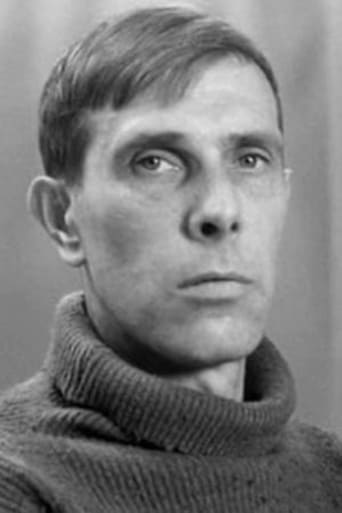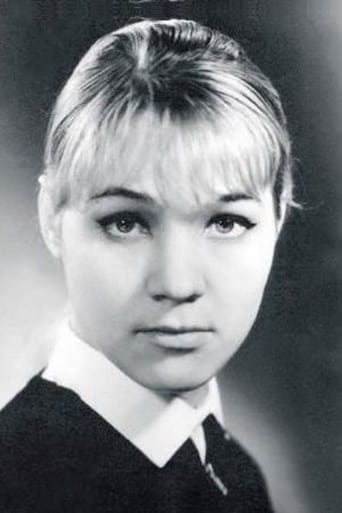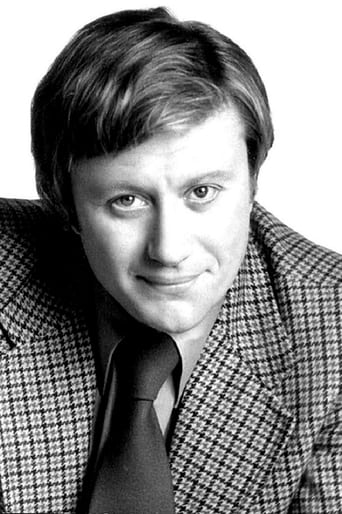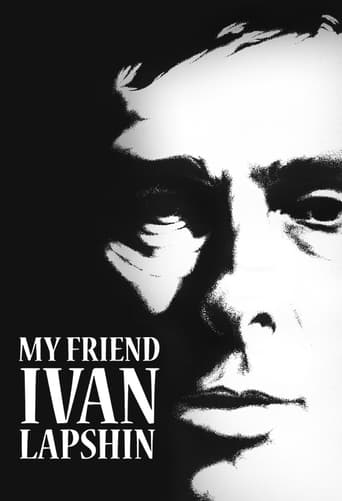
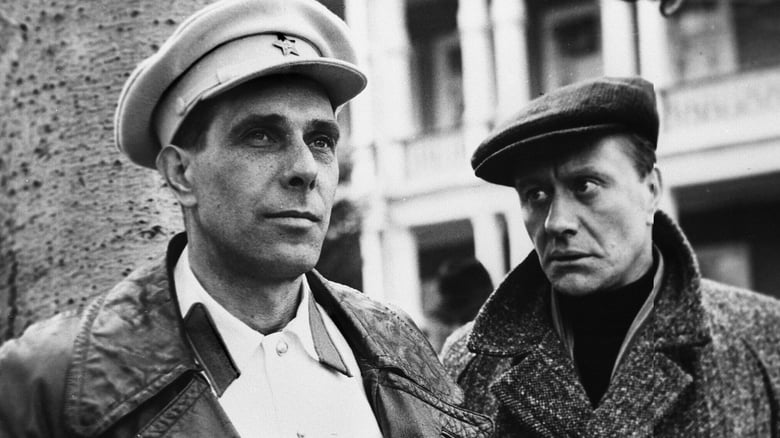
My Friend Ivan Lapshin (1987)
Russian provincial town in the middle of the 1930s Stalin's Great Purge. Ivan Lapshin, the head of the local police, does what he has to do. And he does it well.
Watch Trailer
Cast
Reviews
If you like to be scared, if you like to laugh, and if you like to learn a thing or two at the movies, this absolutely cannot be missed.
This is a coming of age storyline that you've seen in one form or another for decades. It takes a truly unique voice to make yet another one worth watching.
Great movie. Not sure what people expected but I found it highly entertaining.
The story, direction, characters, and writing/dialogue is akin to taking a tranquilizer shot to the neck, but everything else was so well done.
They often say that German excessively darkens Stalin era. In reply I would mention that the movie was shot in my native city of Astrakhan in 1978 - on the 61st year of communist ruling. All those nightmare buildings are not stage constructions, those are buildings where people still live. All those freaks are not crowd scene actors - they are real population of the district close to Astrakhan jail. It would be very one-sided to bound the idea of the movies to critics of totalitarianism. For me it is one of the greatest attempts to answer question like -what makes people live? -why one can loose all the desires? -can you stand when everything around makes you vomit? The set of actors is great.
I just heard about German, I mean I knew something about his Krustaliov but I couldn't find it. Now, reading all this reviews about him, little in number but strong in appreciations as they are, I wanted to see his Ivan Lapshin. I just managed to see it with good quality, English subtitles on Youtube. I was amazed, German is in a league of his own, like Bela Tarr but more enjoyable. No wonder he made only six or something movies in his entire career. If all the other movies of him are of the same quality as this one I can understand the effort that he puts in such works of art. His long takes are so much better than,let's say, those artificial ones of Angelopoulos. He is so much more modest than a lot of filmmakers who wonder around at festivals hunting an award or two. He is pristine, alive, every shot of this movie contains something magical. Bravo!
Recently top 50 national critics (in Russian edition of Empire magazine) have named the top 100 best films in Russia/USSR history. Not many cinephils have argued about the 1st place, with Alexei German's "My Friend Ivan Lapshin" taking the top spot. Another two of his films also took their place in the rating ("Check-up on the Roads" - arguably the best Russian film about WWII, and "Khrustalyov, My Car!"). Shamefully not so famous outside Russia, Alexei German is certainly one of the brightest (and pretty much hated by soviet ideologists) directors in his homeland, sharing pantheon with the likes of Dziga Vertov, Sergey Eisenstein, Marlen Huciev, Iosif Kheifits, Andrey Tarkovsky and many more wonderful names. "My friend Ivan Lapshin" is not an easy film to watch. It's dark atmosphere of early Stalin years, one might call it soviet film noir. But in contrast to classical American noirs, "Lapshin" adds much more realistic tones; shot in black and white with hand cameras it sometimes looks like half-documentary, making it closer to french Nouvelle Vogue. Still, New Wave directors had so many poetry in their works, you can hardly find some in German's movies. German shows life as it is, without any adorns. In this sense, maybe Italian neorealism is the closest cinematographic example you can find when looking for comparisons. But still you can't find any exact compares because German creates cinematic structures out of time and any particular school. He doesn't follow any genres' principles and cinematic rules."Lapshin" concentrates on a very short period of life of police detective Ivan Lapshin. Plot story takes place in a small Russian provincial town, in the middle of the 1930ies, the beginning of the horrible era of Stalin's political repressions. The story is told by an adult man who was a boy at that time and who remembers Ivan Lapshin in the light of childhood's memories. You won't find any particular political message here, although film has been banned right after the end of shooting and German received many official warnings. It is very hard to distinguish the true meaning of the movie, because every single motive, every idea is hiding in communication between characters. Police investigation is just an external part of the script which softly covers existentialistic relations. Deep emotions are hiding in outwardly bleak and unfriendly world that we see on the screen. These people are just living their usual lives and are very mixed up. They seem to be lost in time and space, and simply don't understand that they are part of emotionless system that eats their souls, system that corrupts people's being - and camera catches this atmosphere without excess words, just like child's memories sometimes can't be described with them. But even so it can't destroy the very essence of a man. People are brave, and not because they act bravely, but because they are protecting human relations, don't let them roll into madness, which is hiding in every corner. It's a strange and beautiful film. Every single actor (even Andrey Mironov who was already on pick of his fame at the moment) played his career's best role. Just like "Berlin Alexanderplatz" helps to understand the existentialistic being of post-war Germans, "Lapshin" helps to understand the core of the strange Russian soul that suffered so much during the age of horror, of the people who got so many psychological traumas, but who fought for their right to live a normal life.
This film is set at a very specific date, after the murder of the Leningrad Soviet boss Kirov in 1934, just before the first Soviet purges. There had already been disasters- the great artificial famine in the Ukraine which is alluded to- but this was the last time when Soviet officials could still have clean consciences and clean hands and do their duty. At one point in this film there is a scene of a cock and a fox in a cage together,learning to befriend one another, the child in charge says. Later we learn that the fox ate the cock, but "The experiment goes on." That phrase expands from the one casual scene until it dominates the film.There are two aspects to the film. There are plots- Ivan Lapshin's hunt for the murderous Soloviev criminal gang and his wooing of an actress- but the most important aspect of the film is the portrait of provincial Soviet life at that moment, seen in the memory of a a man who was a small boy in the overcrowded communal apartment he and his father shared with Lapshin and others. We see the overcrowding, the way people are pushed together, the obsession with food and rations, with getting illegal firewood. We see the other people in the apartment and are casually shown the way people actually live as against the propaganda they are told and believe. We see Lapshin suffering from shell-shock from the revolution and realise that the murderousness that was there then still exists. We see the contrast between rhetoric and reality- the actress meets a prostitute, to learn for a part in a propaganda play about reforming criminals. Later we see part of the badly-acted play and incidentally learn the prostitute has been sent to hard labour. Lapshin and his men search a tenement for the criminals and we cannot tell criminals from the others- displaced peasants fleeing the famine, just as hostile to and scared of authority- there. When Lapshin finally captures Soloviev- unarmed and wounded- he coolly shoots him dead and we realise what he and those like him could do in the future.
